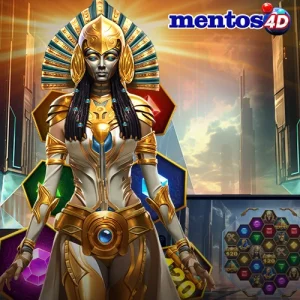The Evolution and Impact of Online Gaming: A Gateway to Virtual Communities
In the realm of modern entertainment, online gaming stands as a towering colossus, captivating millions of individuals worldwide. From the early days of Mentos4d rudimentary multiplayer experiences to today’s immersive virtual worlds, the landscape of online gaming has undergone a profound evolution, reshaping not only how we play but also how we interact and connect with others. 
The Rise of Online Gaming
The genesis of online gaming can be traced back to the late 20th century when the internet began to permeate households. Initially confined to basic text-based adventures and primitive multiplayer experiences, the potential of online gaming was readily apparent. As technology advanced, so too did the complexity and scale of these virtual worlds.
From Solitary Pursuit to Social Phenomenon
What sets online gaming apart from its offline counterparts is its inherent social nature. While traditional gaming often involves solitary experiences or local multiplayer, online gaming transcends geographical boundaries, allowing players to engage with individuals from diverse cultures and backgrounds. This social aspect has transformed online gaming into a vibrant ecosystem teeming with camaraderie, competition, and collaboration.
The Diversity of Online Gaming Experiences
One of the most remarkable aspects of online gaming is its sheer diversity. From massive multiplayer online role-playing games (MMORPGs) where players embark on epic quests in fantastical realms to intense first-person shooters that test reflexes and strategy, there exists a myriad of genres and subgenres catering to every conceivable preference. This diversity ensures that there is something for everyone in the vast tapestry of online gaming.
The Technological Frontier
Advancements in technology have been instrumental in pushing the boundaries of online gaming. From the advent of broadband internet enabling seamless connectivity to the proliferation of powerful gaming consoles and high-performance PCs, each technological leap has unlocked new possibilities. Furthermore, emerging technologies such as virtual reality (VR) and augmented reality (AR) promise to elevate the online gaming experience to unprecedented heights, blurring the line between the virtual and the real.
The Impact Beyond Entertainment
Beyond its role as a form of entertainment, online gaming has had a profound impact on various aspects of society. For many, online gaming serves as a form of escapism, offering respite from the rigors of daily life. Moreover, online gaming has emerged as a lucrative industry, with professional gamers, esports tournaments, and streaming platforms attracting massive audiences and generating substantial revenue.
Building Communities in the Digital Age
Perhaps most significantly, online gaming has fostered the emergence of vibrant virtual communities. Whether through guilds in MMORPGs, clans in competitive shooters, or online forums and social media groups, players have forged lasting friendships and connections that transcend the confines of the virtual world. In an era marked by social distancing and digital connectivity, these communities serve as invaluable sources of support, camaraderie, and belonging.
Conclusion
In essence, online gaming represents far more than mere entertainment; it is a testament to the power of technology to unite individuals, transcend barriers, and create shared experiences in the digital age. As we continue to journey into the uncharted realms of virtual worlds, one thing remains abundantly clear: the impact of online gaming will continue to resonate far beyond the confines of the screen, shaping the way we play, interact, and connect for generations to come.